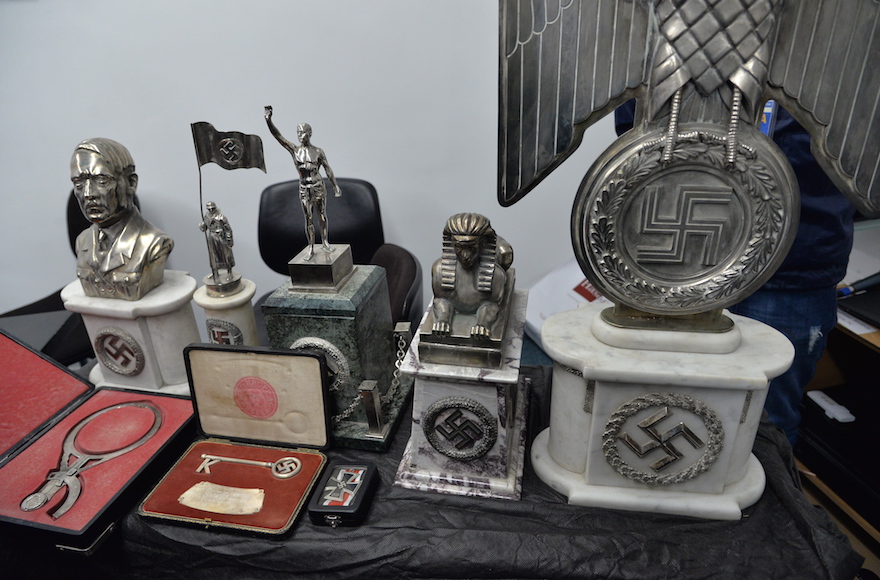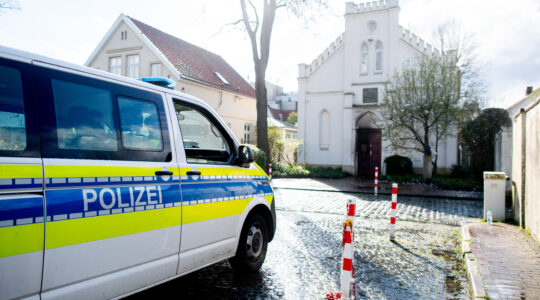BUENOS AIRES, Argentina (JTA) — The Holocaust Museum of Buenos Aires, Argentina, which last week welcomed a record 17,727 visitors in one night, has closed for a year-and-a-half to do renovations.
The 17-year-old museum set its attendance record on Saturday, and announced the closing two days later for a $4 million building project that will add space for a permanent exhibit on Adolf Eichmann’s life in Argentina after World War II. Also, a permanent exhibit will feature a trove of Nazi-era objects uncovered in June by the Argentine Federal Police and turned over to the museum for display. The objects include a bust relief of Adolf Hitler, medical devices marked with swastikas used to measure head and body size, Nazi puzzles for children, a magnifying glass attached to a photo of Hitler using that magnifying glass, and knives, among other objects.
When the objects were presented to the public in June, Holocaust Museum President Marcelo Mindlin told JTA that hosting the collection “is a great responsibility.”
“We will prepare our site to receive this contribution. There will be a lot of fanatics that will want to enter, there will be people trying to steal the objects,” he said, noting that “huge security issues” must be worked out.
Experts are analyzing the objects, which remain in judiciary custody. The judge in the case is Sandra Arroyo Salgado, the widow of former AMIA Jewish center bombing prosecutor Alberto Nisman. Salgado imposed a gag order on the investigation of the objects, so no further details were revealed. But Argentine Security Minister Patricia Bullrich said she asked Salgado to have the objects donated to the Holocaust Museum of Buenos Aires and she agreed.
A first analysis has revealed that most of the objects are originals from the Nazi era, according to information obtained by JTA.
The executive director of the museum, Jonathan Karszenbaum, told JTA that the institution has invited other institutions that work with the Holocaust and survivor issues to relocate to space in the newly renovated museum.
“We also are working with the Holocaust museum in Washington and Yad Vashem for their expertise and also to incorporate new materials, mostly multimedia,” into the revamped museum, he added.
The cost of the renovation is being covered by private donors, including the Mindlin family, though funds are still being raised.
The attendance record was established during “Museums Night,” an evening sponsored by the Buenos Aires city government in which museums and iconic buildings of the Argentine capital are open, with free admission and special activities.
During the renovation, the museum will keep an exhibition on display at the Latinamerican Rabbinical Seminary in Buenos Aires that will be open to visitors.
The museum, which welcomes visitors from around the world, is tentatively scheduled to reopen in April 2019.






